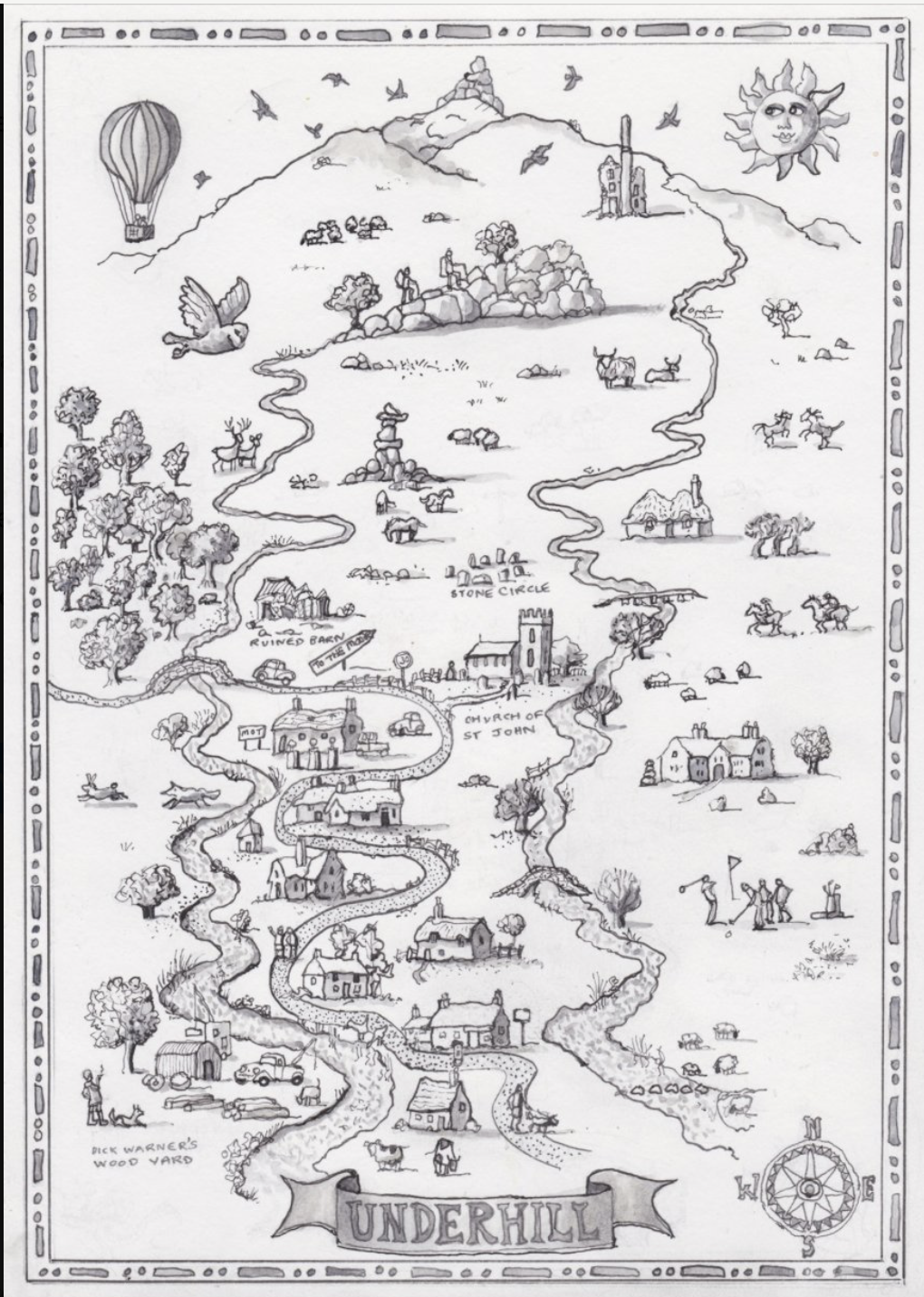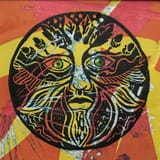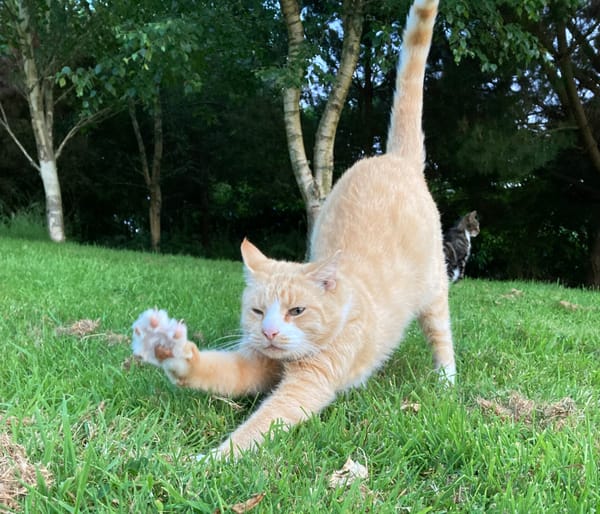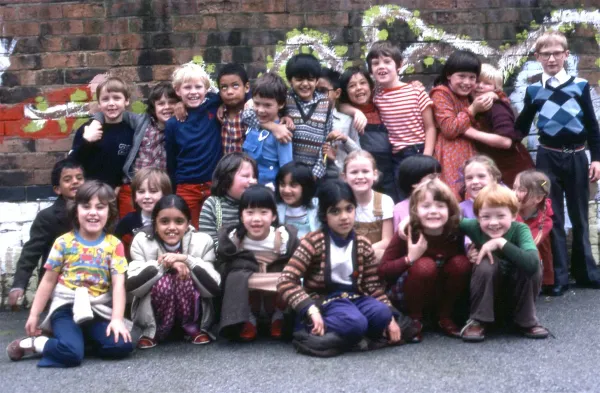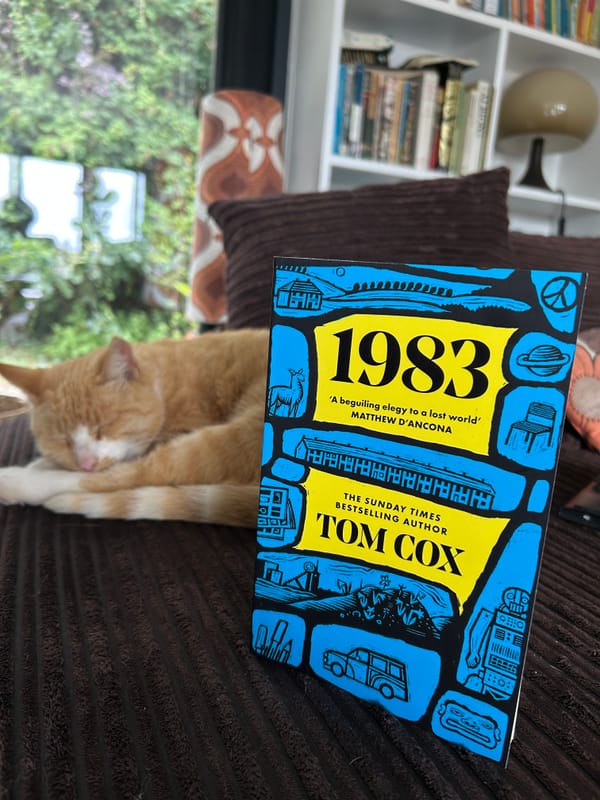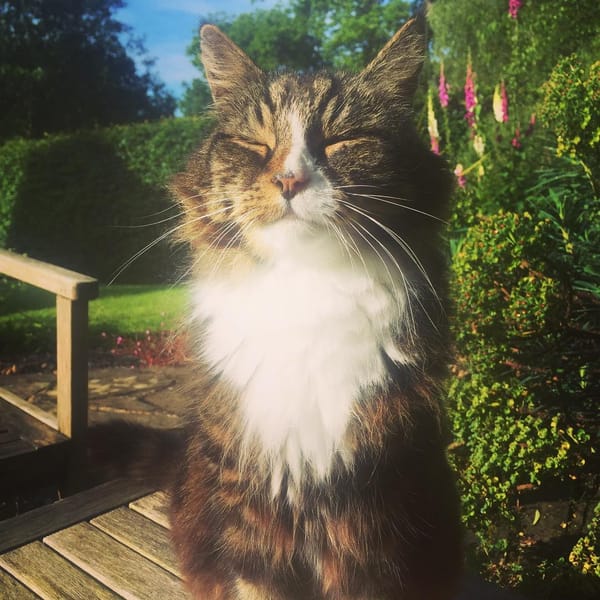For Villager Paperback Publication Day: My Answers To Some Of Your Questions
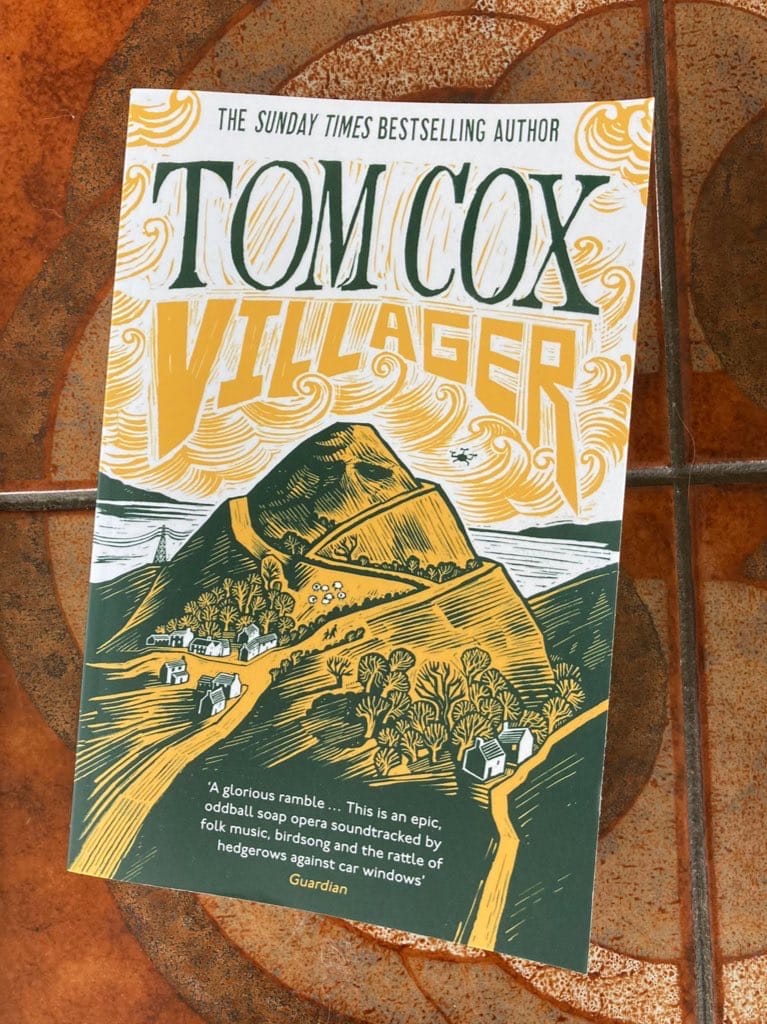
My novel Villager is published in paperback today. If you’d like to order a copy, you should be able to get one from your local independent bookshop, or you can order online from my publishers, Blackwells (with free worldwide delivery) or Amazon. Alternatively if you’re in the UK you can drop me a message via my website if you’d like to buy a signed one direct from me, with a free postcard of the map of Underhill from the opening pages (illustrated by my dad, Mick), for cover price plus p&p.
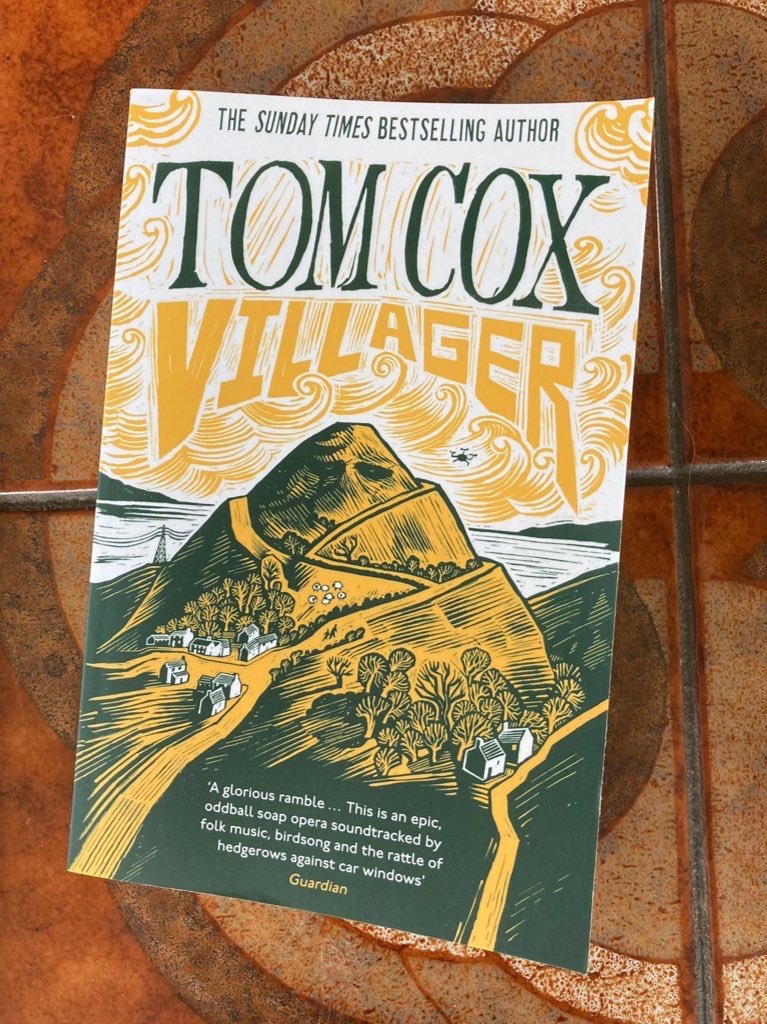
Thank you to everyone who sent in questions for my competition to win a signed paperback. There were lots of very good ones and it took me much longer than I’d anticipated to narrow it down to five. Here are the ones I chose, with my answers:
How much do you feel you have evolved as a writer in terms of subject matter over the years and has this been deliberate? It seems to me as a reader that you have moved from golf, to cats, to the countryside and folklore and now a novelist. This seems quite eclectic - has moving house so often also helped make these decisions for you to a certain extent? (Matthew Wassell - via Substack.)
I think the beginning of that, before golf, was music, which was the beginning of my writing career, via the NME, Uncut and The Guardian. In the summer of 1999, I had just turned 24 and was doing what a lot of my friends (and I, with caveats regarding some of the internal politics associated with it and how insulting the pay was) viewed as a dream job, on contract for a major newspaper as their Music Critic, but I think then I always had a strong suspicion that writing about one thing for too long would do nothing for my development as a writer. So, a year later, I went against what most people were telling me I should do, and quit. Then came the cat books and the golf books, and a couple of music ones I am not overly fond of. But I’m much more eclectic in my writing now than I was when I was hopping about between those subjects, much more terminally interested in everything; the difference is now I tend to try to get it all into the same book. Of course, the problem with being interested in everything is you never become an expert in one thing. Apart from maybe moving house. I do think I might now qualify as an actual expert at moving house. It happen without you even trying when you’ve moved as many times as I have. And, yes, it has had a massive impact on what I’ve written about. After a while, stepping out the front door in your walking boots and asking “Ok, what is there to explore and learn about here?” becomes a force of habit.
What have you written that you have found the most cathartic? (Jennifer Ashbridge - via Instagram.)
Every book I’ve written, since around the middle of the last decade when I started to shake off the centuries-ingrained provincial peasant class-based diffidence that had been holding me back and making my writing far too obedient, has felt cathartic in its own way, purely by being me writing what I really want to write purely for me, but I think the most cathartic of all was the final section of Ring The Hill, which is about the death of my cats Shipley and The Bear, but also about a once-in-a-lifetime magical house I lived in and my decision to leave it. It was a very heightened creative experience in so many ways: I felt very upset at various points while writing it, but also thrilled, and learned more about myself and what I’d been through in the process. I was exhausted by the end, but in a good, fulfilled way. Several people have told me that tears came to their eyes while reading it, just as they did mine as I wrote it, and I was once told by a reader that her terminally ill friend insisted that it was the final thing she read before she died: a fact that absolutely flattened me. But it remains - partly because Ring The Hill had the misfortune of being a lockdown paperback - one of the less widely-read bits of my writing. I think it’s a shame that a lot of the people who take the view of “I liked his cat books but I’m not interested in his weird stuff about landscape and walking and all those other things” - especially those who came to know Shipley and The Bear through those cat books - will never read it, since, even though it’s not centrally about cats, it’s incontrovertibly the best stuff I’ve ever written about them.
Why hadn't you written a novel before? (Richard Walshe - via Twitter.)
Short answer: I wasn’t good enough. At least not to fulfil the particular vision in my mind of what a novel by me needed to be. Not at 27, not at 33, not - to my utter dismay - even at 40, or 43, or 44. Long answer: a lot of stuff got in the way for a long long time. Prioritising more bankable work that paid the mortgage, then - later - the rent. Faffing about trying to work out what I wanted to say. Not believing in any character I invented until maybe around early 2017. Being told that what I wanted to do wasn’t possible by people who I naively thought might be on my side artistically but actually only had sales targets in mind. Amassing more life experience, more reading, more disappointments, more interaction with landscape. I like to think that all the stuff that got in the way ultimately made the flavour richer, but of course I’m going to tell myself that, aren’t it? Whatever the case, I’m glad I waited. As a wise editor once said to me: “If you want a career themed around deferred gratification, become a novelist.”
It's amazing how I can remember all of the illustrations from the Ladybird fairy tales so vividly, they really were works of art in their own right. So my question is, what did you read as a child and how has it influenced you as an adult? (Jo Swift - via Substack.)
My mum and dad have told that when I was very little I would nag them to read to me at bedtime, to the point that it became annoying and they were extremely relieved when I learned to read the books myself. How many times must I have zipped through The Fantastic Mr Fox by Roald Dahl? Fifty? A hundred? My literary childhood separates into two parts: voracious reader (0-11) and sports nut who only read books and magazines about sport (11-17). I feel like I missed out on a lot of more intensive reading I might have done, due to that second phase, but the books I consumed as a young child have stayed with me and I realise more and more how instrumental they were in forming who I am and what I write about now. You go back to those 60s and 70s editions of Ladybird’s Well-Loved Tales, or Kit Williams’ Masquerade, and you realise you were part of a generation of British children whose literature had an extremely strong rural-psychedelic folk horror aesthetic, and its influence took hold even more powerfully if - like me - you actually lived in a quite weird part of the countryside at the time you were first consuming all that stuff.
Are you settled now in your home or are you ,like me ,a wanderer? (Sukie Bruce - via Substack.)
Anything but settled, is he honest answer, much as I like the current place. My partner and I knew that we were taking out a temporary contract when we moved to Cornwall at the beginning of autumn. We’re over halfway through it already so another move is already looming. But I have realised that the sheer amount of moves I’ve done since December 2017 (the one fast approaching will be the eighth) and the miles I’ve clocked in the process is not sustainable as a future plan, especially when it comes to my physical health, let alone other concerns like how much stuff I cart with me each time and how damaging it is to my bank account. I don’t travel light, I’ve always been a homemaker and interior decor nut, and having a long term partner naturally makes my nesting instincts a little stronger. But I don’t regret any one of my moves, especially considering the positive influence they’ve had on my writing, and I think an element of wanderlust will always be in me, maybe even a more exotic one (I am super aware that none of my travel writing has ventured overseas, and that is starting to feel like an oversight). The current equation to be solved is to find a way to continue to satisfy the wanderlust, continue allowing new places to exert their influence on my writing, but break my body a little less in the process.
